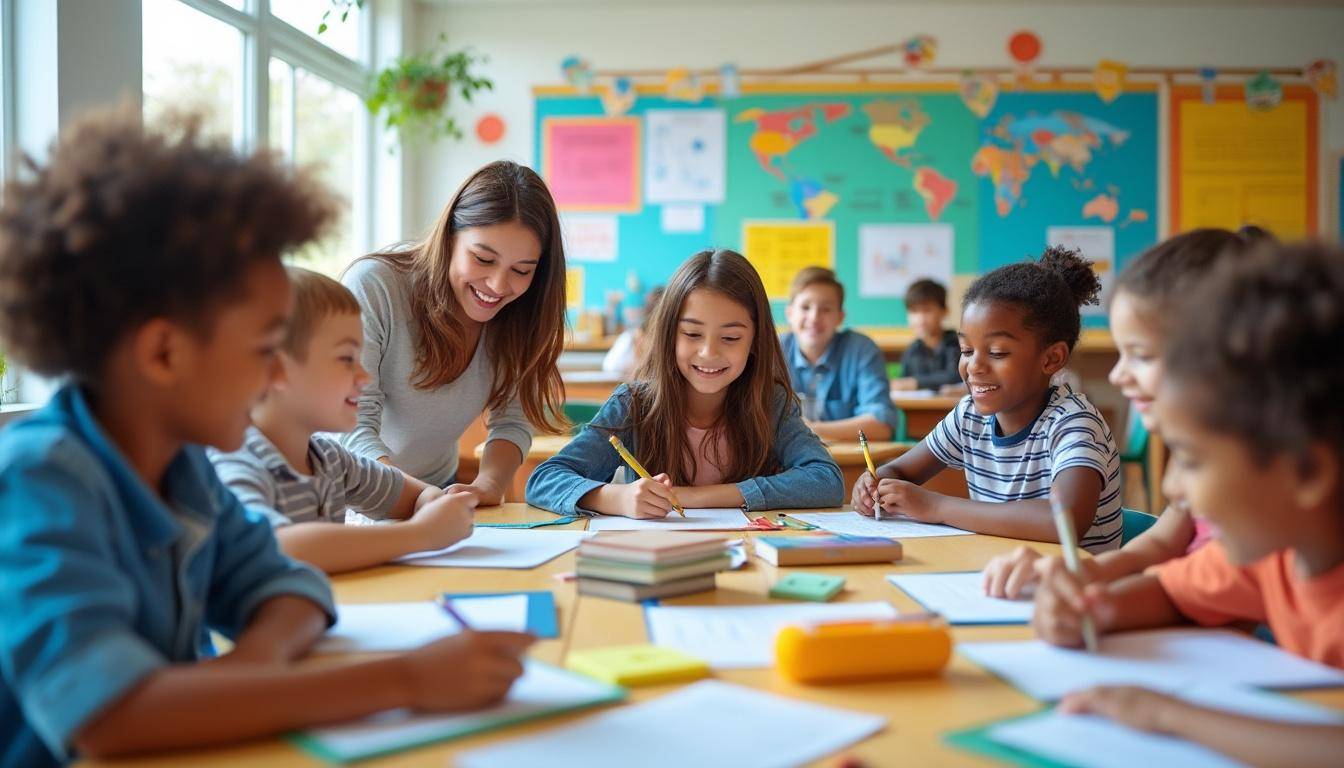Understanding how parental education influences children’s academic self-concept during elementary school reveals essential insights for educators and families striving to nurture successful learners. The early school years provide a unique opportunity to foster motivation and confidence, yet disparities rooted in parental education at both home and school levels often shape children’s beliefs about their academic abilities. This dynamic affects not only individual performance but also broader developmental outcomes, highlighting the need to navigate complex social and educational contexts to promote equal opportunities for all students.
How Household Parental Education Shapes Academic Self-Concept in Elementary Students
Children’s self-perception in academic domains, known as academic self-concept (ASC), develops significantly during elementary school and is closely tied to their motivation and long-term educational attainment. Research shows that children from households where parents have higher education tend to exhibit a more positive ASC compared to peers from lower-educated households. This stems from the greater availability of economic, cultural, and social resources that higher-educated parents utilize to support their children’s learning experiences.
The parenting approaches associated with different education levels distinctively influence children’s academic self-views. For example, higher-educated parents often engage in “concerted cultivation,” characterized by deliberate involvement in children’s learning, encouragement of curiosity, and engagement in structured activities. Conversely, those with less education might adopt the “accomplishment of natural growth” strategy, emphasizing unstructured play and entrusting formal education predominantly to schools.
This disparity highlights the importance of educators recognizing diverse family backgrounds while crafting strategies to support children’s academic confidence. Scholastic materials and programs such as Khan Academy and ABCmouse can be invaluable in bridging resource gaps by offering accessible, enriching educational content tailored to varied learning styles.
- Higher-educated parents provide structured learning support and active school involvement.
- Lower-educated households often rely more on the school environment for child learning.
- Positive academic self-concept correlates with reduced anxiety, increased engagement, and higher academic achievement.
The Role of Academic Achievement as a Mediator
Academic achievement serves as a key mediator in the relationship between parental education and ASC. Children’s standardized test scores and grades, reflective of their academic success, strongly influence their confidence in their abilities. Data from Dutch elementary schools revealed that children with higher academic achievement, often linked to parents’ education levels, reported stronger academic self-concepts by sixth grade.
This suggests that interventions aiming to promote both skill development and positive self-perception can benefit from integrated approaches. Initiatives supported by organizations like Sesame Workshop and PBS Kids, which combine engaging content with foundational skill-building, can reinforce both achievement and intrinsic motivation.
- Higher academic achievement boosts children’s beliefs about their learning abilities.
- Interventions targeting skill gaps can help improve academic self-concept.
- Educational games and interactive platforms like LeapFrog and BrainPOP enhance skill acquisition.
The Influence of School-Level Parental Education on Children’s Academic Self-Concept
Beyond the household, the collective educational background of parents within a school contributes substantially to children’s ASC development. Schools with higher percentages of children from lower-educated parents often create environments where children rate their academic abilities more positively compared to schools with predominantly higher-educated families. This counterintuitive finding can be explained by social comparison effects; in highly competitive, academically demanding schools, children may feel less confident relative to their peers.
The “big-fish-little-pond” effect illustrates how students’ academic self-concept is shaped not only by their own achievement but also by the academic environment. Lower parental education schools may offer less competitive atmospheres, prompting students to develop stronger self-confidence. Therefore, balancing academic rigor with supportive environments is crucial to nurture healthy ASC in diverse school contexts.
- Schools with higher parental education levels tend to have more resources but may foster competitive pressures.
- Students in lower parental education schools may have a protective boost in academic self-concept due to relative social standing.
- Teacher expectations and school climate critically influence ASC formation.
Educational tools and community resources provided by groups such as National PTA and Crayola facilitate enriched school environments and engagement for all students regardless of school composition.
How School Context Moderates Household Parental Education Effects
School-level parental education acts as a moderator in how individual household education levels influence children’s academic self-concept. Children from lower-educated families benefit more in schools with similarly lower parental education composition, partially due to a better developmental fit and reduced negative social comparisons. Understanding this nuanced interaction guides educators toward creating tailored support systems that consider both family and school contexts.
- Children of lower-educated parents develop better ASC in less academically competitive schools.
- A supportive school community can mitigate disparities arising from family background.
- Embedding parental engagement initiatives is essential to complement school efforts.
For additional strategies on promoting parental empowerment and engagement in education, stakeholders may consult resources like Education to the Top’s parental empowerment guide and explore successful community summits highlighted in their parental engagement summit overview.
Strategies to Bridge Parental Education Gaps for Better Academic Self-Concept
Closing the disparities in academic self-concept linked to parental education requires comprehensive efforts involving families, schools, and communities. Embracing diverse educational platforms such as PBS Kids, BrainPOP, and LeapFrog helps deliver versatile learning experiences that adapt to children’s varied needs. Additionally, schools partnering with organizations like National PTA further facilitate valuable parental involvement programs.
Key strategies include:
- Implementing academic achievement supports targeting children from lower-educated households.
- Fostering collaborative home-school relationships to align educational goals and expectations.
- Utilizing interactive tools and programs like ABCmouse and Crayola learning kits to enrich home learning.
- Offering workshops and webinars to empower parents in their roles, accessible via platforms such as Education to the Top parental roles webinar.
- Recognizing and addressing language and cultural challenges faced by immigrant families as discussed in recent language skills reports.
These interventions not only improve academic performance but also nurture children’s positive self-belief, setting a foundation for lifelong learning and well-being.


